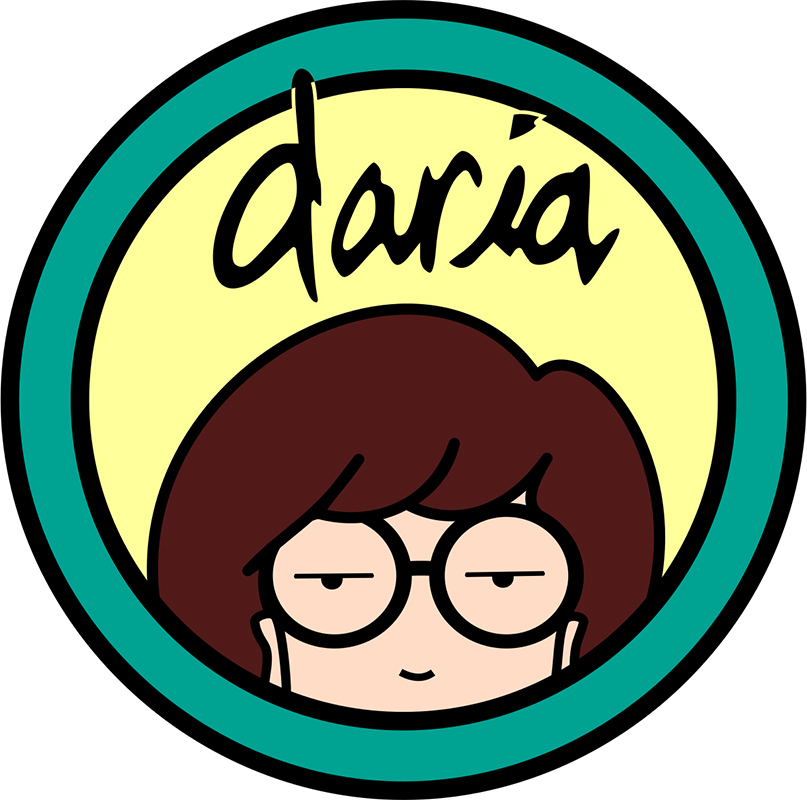Daria is an animated comedy TV series that ran from 1997 – 2001 on the popular channel, MTV. It is safe to say that Daria was one of the pinnacles of ‘90s culture. Based on an intelligent, sarcastic, and pessimistic young woman, Daria (who originated as a character in Beavis and Butt-head), and her best friend, Jane, this show follows the teens through struggles of growing up in the ‘90s.
Daria captures some of the issues that girls were struggling with during this time. The show was a part of larger feminist narratives that began forming in the ‘90s.
Daria is a unique role model for young women in that she not only rejected the cultural standards that girls were striving to meet, but she often gave spot-on critiques of the culture in her one-off monologues that were frequent throughout the show. A personal favourite is: “As far as I can make out, ‘edgy’ occurs when middle-brow, middle-age profiteers are looking to suck the energy, not to mention the spending money, out of the quote, unquote youth culture. So they come up with this big concept of seeming to be dangerous, when every move they make is the result of market research and a corporate master plan.”
Megan Koester in her article for the Guardian titled “Daria: the ‘90s cartoon that nailed American feminist teenhood” explains that Daria blossomed into an icon of above-it-all, take-no-shit feminism.” Daria’s societal critiques are still relevant today and are even applicable to what is studied in sociology classes in the year 2020.
Modern critics might say that the show is an example of white feminism. Daria only had two black characters, one of which was a female supporting character, Jodie. Jodie is an overachieving cheerleader with a high IQ. In an article from Vice, author Britt Julious explains that Jodie was an image of her future when she was growing up.
Julious quotes an iconic episode where Jodie calls Daria out on her privilege: “At home, I’m Jodie. I can say or do whatever feels right. But at school, I’m the Queen of the Negroes. The perfect African-American teen. The role model for all of the other African-American teens at Lawndale … Believe me; I’d like to be more like you.” Julious explains: “Daria and Jane had to do very little; Jodie had to do it all.” In other episodes, Jodie and her boyfriend, Mack, express annoyance at being named homecoming king and queen as tokens of diversity for the school, and Jodie calls out a banker for rejecting her loan based on the colour of her skin.
The truth that Daria presents in its episodes is something the world still needs, so if you’re looking for some dry but intelligent and accurate sarcasm, this ‘90s cartoon might be just what you need.

Darien Johnsen is a UFV alumni who obtained her Bachelor of Arts degree with double extended minors in Global Development Studies and Sociology in 2020. She started writing for The Cascade in 2018, taking on the role of features editor shortly after. She’s passionate about justice, sustainable development, and education.


